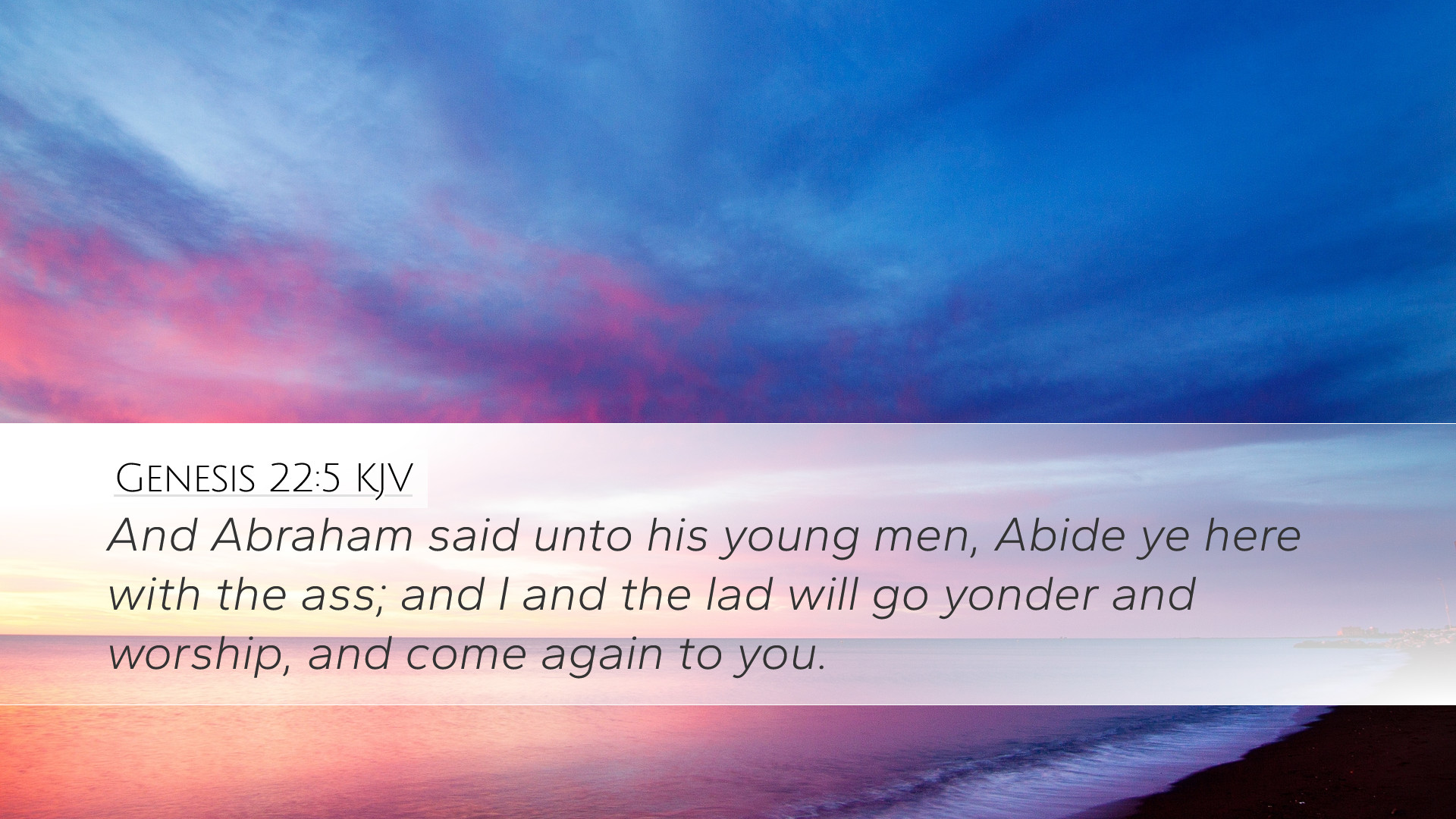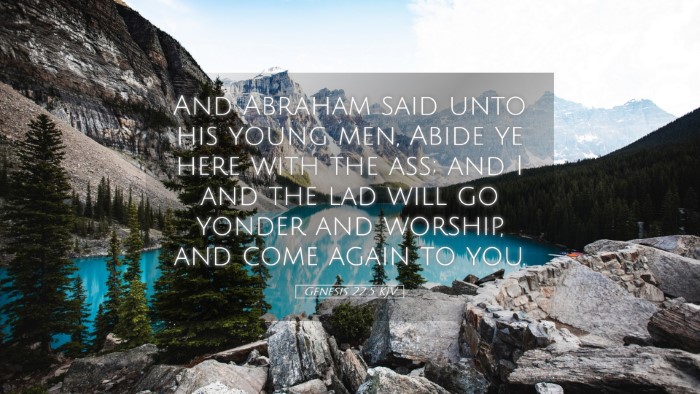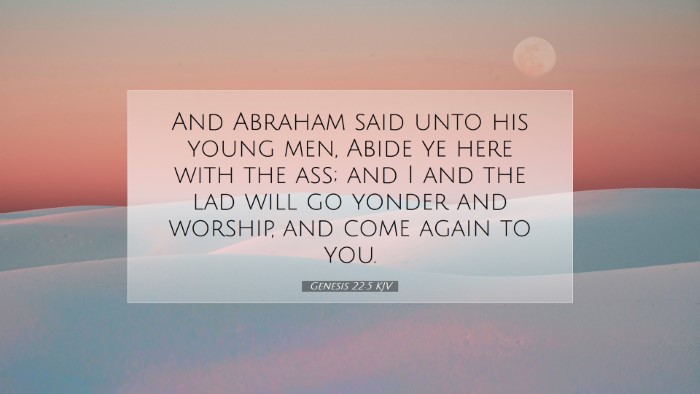Commentary on Genesis 22:5
Genesis 22:5 states, "And Abraham said to his young men, 'Stay here with the donkey; the lad and I will go yonder and worship, and we will come back to you.'" This verse is pivotal in the narrative of Abraham's faith and obedience and serves as a profound illustration for pastors, students, theologians, and Bible scholars. Below, we explore various insights and interpretations from prominent public domain commentaries.
1. Contextual Background
Genesis 22 chronicles one of the most significant events in the life of Abraham—his willingness to sacrifice Isaac. This chapter not only tests Abraham's faith but also serves as a foreshadowing of the ultimate sacrifice of Christ. The first five verses establish the setting and deepen the narrative tension.
2. Abraham's Faith and Leadership
-
Matthew Henry's Commentary:
Henry emphasizes Abraham's unquestionable leadership in this moment. By instructing his servants to stay behind, he models a kind of confidence and faith that reflects his deep trust in God. Henry notes that this was a deliberate choice to focus solely on worshiping God without distraction.
-
Albert Barnes' Notes:
Barnes points out that Abraham's statement, "We will come back to you", is profound as it demonstrates his unwavering belief that God would maintain His promises. It highlights Abraham's understanding that even if he sacrificed Isaac, God was able to raise him from the dead, illustrating the depth of his faith.
-
Adam Clarke's Commentary:
Clarke elaborates on the significance of Abraham using the word "worship." He indicates that Abraham saw this act of obedience not merely as a test but as an act of worship that honored God. The intent behind the sacrifice is to recognize God's sovereignty and faithfulness.
3. Theological Implications
This verse introduces critical theological themes relevant to various areas of biblical study:
-
Faith in Action:
The act of setting aside the young men symbolizes the nature of personal faith. Abraham models a relationship with God that is characterized by direct interaction, demonstrating that worship often requires solitude and focused intention.
-
Foreshadowing Christ:
Many theologians interpret Abraham and Isaac’s journey to Mount Moriah as a prefigurement of God’s willingness to sacrifice His Son. The phrase "we will come back to you" resonates with Christian theology, emphasizing resurrection themes and the assurance of return through faith.
-
The Nature of Worship:
Worship, as identified by Abraham, is an active response to God's call. It involves sacrifice, submission, and a desire for communion with God. This understanding is vital for those exploring the dimensions of worship in the Christian faith.
4. Practical Applications
The insights derived from Genesis 22:5 can guide modern readers in their spiritual journeys:
-
Personal Reflection:
Pastors and students are encouraged to evaluate their own faith. Like Abraham, believers are called to prioritize their relationship with God above all worldly concerns, embracing opportunities for worship even amidst trials.
-
Modeling Faith:
As leaders, it is crucial to exhibit confidence in God's promises, fostering a faith community grounded in trust and obedience. This narrative encourages us to be mentors and examples of steadfastness in faith.
-
Encouragement for Sacrificial Living:
In a society that often prioritizes self, Abraham's willingness to sacrifice illustrates the call to live sacrificially for Christ, reminding believers that true worship often involves giving up what is most precious.
5. Concluding Thoughts
Genesis 22:5 encapsulates a moment that profoundly affects Abraham's relationship with God and offers rich lessons for believers today. By drawing from the insights of Matthew Henry, Albert Barnes, and Adam Clarke, we can appreciate the text's depth and significance. This passage not only challenges our faith but also encourages a transformative understanding of worship, sacrifice, and the promises of God.


